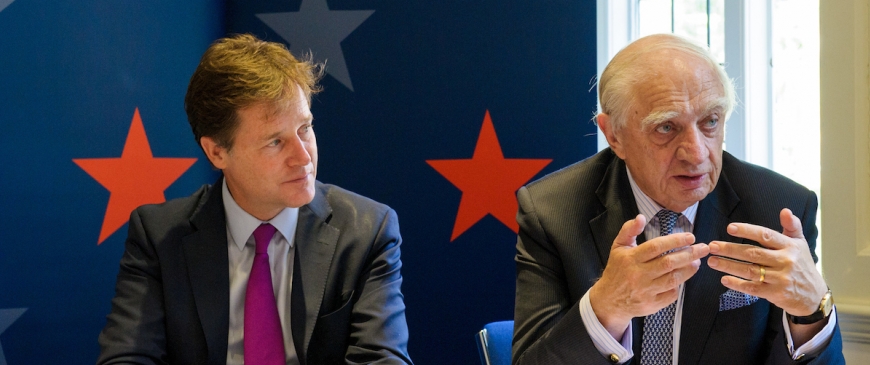
Grappling with trade options
The UK government's unwillingness or inability to explain its "Brexit" strategy came under withering criticism this week from Nick Clegg, a former deputy prime minister, and Peter Sutherland, the World Trade Organisation’s first director-general. The pair shared their extensive experience of EU and global trade issues at an event in London held by the Centre for European Reform.
Neither man disguised his pro-EU sympathies. However, the important point was their contention that the government of Theresa May seems as confused and divided about how to set a course for Britain’s post-EU trade relationships as it was when she took office on July 13. As Mr Sutherland, a former EU commissioner, put it: “The government must move on from the meaningless platitudes of ‘Brexit means Brexit’.
Of special concern to both men was the question of whether the UK will leave not just the EU and its single market, but also the bloc’s customs union. Although Mrs May’s Downing Street office was at pains to stress this week that the government had not yet taken a decision, her cabinet’s political balance suggests that the choice, in the end, will be to quit the customs union.
Some influential ministers assert that this would liberate the UK from EU bureaucracy and open the door to prosperity-boosting free trade deals with countries across the world. However, Mr Clegg, who worked on trade matters for the European Commission in the 1990s, observed that it would not be as simple as that.
In the first place, there would be customs controls on the UK-EU borders and “an explosion of red tape that will settle on the shoulders of British exporters”, he said. “Far from being a liberation from hassles, the reality is not only more complex but almost the exact reverse.”
This is not only because all goods exported to and imported from the EU would need to be declared to customs authorities, creating extra paperwork and delays. It is because the UK would undoubtedly want a free trade deal with its former EU partners, and this would require British exporters to comply with “rules of origin” concerning the components of their goods.
These days, British companies selling into the EU market are often involved in complex supply chains that involve firms from the US, Asia and other non-EU regions. If Britain left the customs union, numerous types of products would be subject to the EU’s “rules of origin”. According to Mr Clegg, this would increase the trade costs of UK exporters by 4 per cent to 15 per cent, depending on the sector.
Secondly, before the UK can open detailed talks with non-EU countries on free trade deals, it will need to establish “schedules of commitments” at the WTO that set out the default duties applying to imports into the UK. Mr Sutherland, recalling his experience of these procedures, warned that it would be anything but plain sailing. “You have to negotiate tariff line by tariff line,” he said.
He also poured cold water on the notion that the UK, when negotiating trade deals with other countries, would be able to insist that financial services — especially important to the UK economy — be treated separately from other commercial activities. “I’ve never seen a trade negotiation where the interdependence between one sector and another isn’t obvious, and nothing is agreed until everything is agreed,” said Mr Sutherland.
